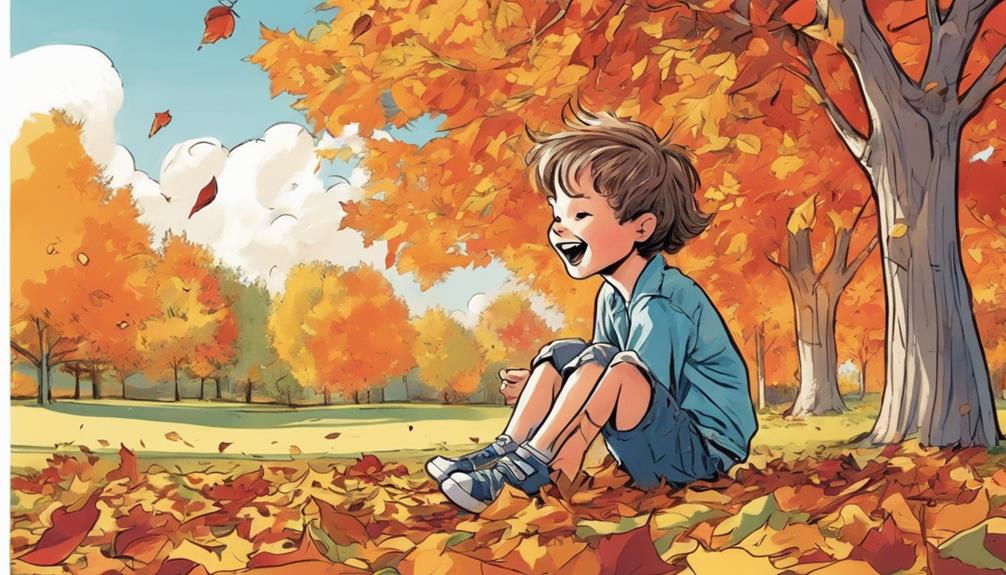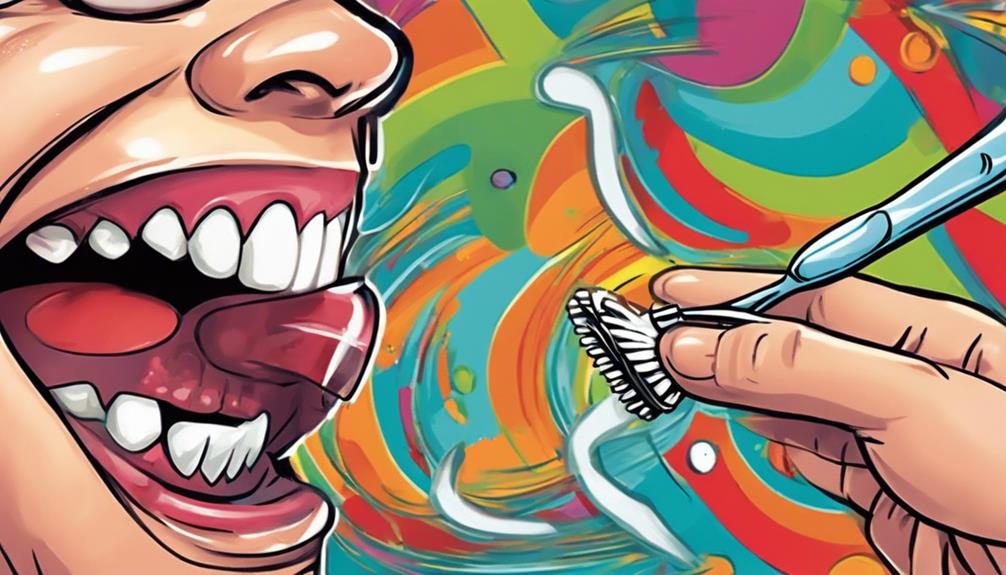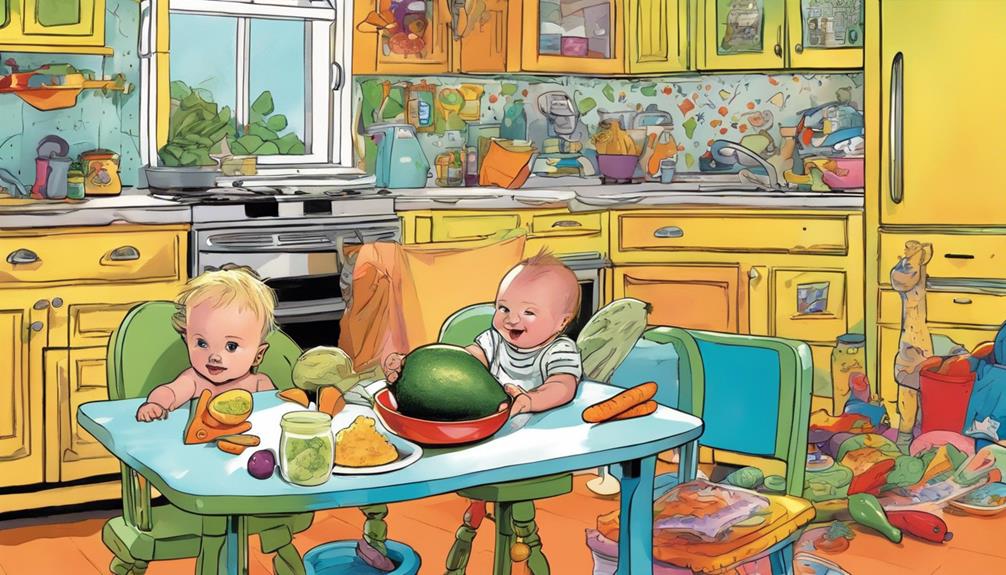Children's teeth fall out naturally, usually starting around age six. It begins when the roots of baby teeth dissolve, making them loose and ready to be replaced by adult teeth. You'll notice that the lower central incisors typically go first, followed by the upper ones. Factors like genetics and diet can influence when this happens. Caring for baby teeth is essential, as it helps guarantee that permanent teeth grow correctly. Look for signs like wiggling teeth or discomfort. There's much more to explore about your child's dental journey that can help you support their smile. As kids’ primary tooth development progresses, it’s important to teach them good oral hygiene habits, such as brushing and flossing regularly. Regular dental check-ups are also crucial in monitoring the growth and development of their teeth. By paying attention to their dental health at a young age, you can set them up for a lifetime of good oral care habits and help prevent potential issues in the future.
Key Takeaways
- Baby teeth typically begin to fall out around age 6, starting with the lower central incisors.
- The roots of baby teeth dissolve, allowing for easier loss as adult teeth emerge.
- Genetics and diet can influence the timing and health of tooth loss, with high sugar intake accelerating decay.
- Proper oral hygiene and regular dental check-ups are essential to prolong the life of baby teeth.
Age When Teeth Start Falling Out

Children typically start losing their baby teeth around age 6, marking the beginning of an important developmental stage. This shift is essential as it paves the way for permanent teeth to emerge. The first teeth to fall out are usually the lower central incisors, which often surprises children when they wiggle and eventually come loose. Following these, the upper central incisors typically join the party, making this an exciting time for kids.
As they reach ages 7 to 8, children generally lose their lateral incisors, and by ages 9 to 11, the primary first molars make their exit. Canines usually fall out between ages 9 and 12. It can be a whirlwind of changes for children as they adapt to the sensation of missing teeth and the excitement of new, permanent replacements coming in.
Process of Losing Baby Teeth

As kids lose their baby teeth, a fascinating process unfolds that allows permanent teeth to take their place. Typically, around age 6, the roots of baby teeth begin to dissolve, making it easier for your child to lose a baby tooth. This process usually starts with the lower central incisors, often the first teeth to go, followed by the upper central and lateral incisors.
As your child's jawbone grows, spaces form between the baby teeth, providing room for adult teeth to emerge. By the time your child reaches age 12, most baby teeth will have fallen out, following a specific order: first molars, canines, and then second molars.
During this change, proper dental care is essential. Maintaining a good oral hygiene routine helps prevent premature loss of baby teeth, which can lead to misaligned or crowded permanent teeth. Encourage your child to brush and floss regularly, and make dental check-ups a priority.
Understanding the process of losing teeth can help you support your child through this exciting milestone in their development.
Factors Influencing Tooth Loss

When it comes to tooth loss, several factors play a role in when and how your child's baby teeth fall out.
Timing can vary widely due to genetics, while a diet high in sugar can lead to quicker decay and loss.
Understanding these influences can help you better prepare for your child's dental journey.
Timing of Tooth Loss
The timing of tooth loss can vary widely among kids, influenced by factors like genetics, diet, and oral hygiene. Typically, children start to lose their baby teeth around age 6, with all 20 primary teeth usually gone by age 12. The first teeth to fall out are often the lower central incisors, followed closely by the upper central incisors.
Here are a few factors that can affect the timing of tooth loss:
- Genetics: Some kids may lose their first teeth as early as age 4 due to family traits.
- Oral Hygiene: Good dental health practices can prolong the life of baby teeth, while neglect may cause earlier loss.
Understanding these factors helps you monitor your child's dental health effectively. Keeping an eye on the timing of tooth loss not only prepares you for the tooth fairy visits but also guarantees your child's shift to adult teeth is as smooth as possible.
Impact of Diet
Diet plays a significant role in the health of your child's teeth and can influence the timing and likelihood of tooth loss. When children consume a diet high in sugary snacks and beverages, they accelerate tooth decay, leading to premature loss of baby teeth. This tooth decay can also impact the way permanent teeth grow, as early loss of baby teeth may lead to misalignment.
Additionally, excessive intake of acidic foods can erode enamel, weakening teeth and increasing cavities. Poor nutrition makes teeth more susceptible to decay, affecting both the health of baby teeth and the timing of their loss.
To prevent early tooth loss, encourage your child to eat tooth-friendly foods like fruits, vegetables, and dairy. These foods help strengthen teeth and combat tooth decay.
Monitoring dietary habits is essential; poor oral hygiene combined with a high-sugar diet can lead to significant complications. By promoting a balanced diet and good oral hygiene, you can reduce your child's risk of teeth loss and guarantee that their permanent teeth grow in healthy and strong.
Genetic Considerations
Genetic factors play an essential role in determining not just the timing of your child's tooth loss but also the overall health of their dental development.
You'll notice that some children start losing their baby teeth as early as age 4, while others might keep them longer. This variability often reflects hereditary patterns, echoing the age at which you or other family members lost your teeth.
Several key elements can influence this process:
- Density of dental roots: Stronger roots may delay tooth loss, while weaker ones could lead to earlier loss.
- Family history of dental issues: If there's a pattern of dental problems in your family, it may affect your child's tooth loss timing.
Understanding these genetic considerations helps you anticipate your child's dental health journey.
Importance of Baby Teeth Care

Caring for baby teeth is essential as they play a critical role in chewing, speech, and the proper alignment of permanent teeth. By prioritizing dental hygiene, you're not just protecting baby teeth; you're also setting the stage for your child's future oral health. Establishing good oral care habits early, like brushing twice a day, helps prevent cavities and infections that can lead to premature loss of these essential teeth.
Regular dental check-ups should start by your child's first birthday to monitor the health of baby teeth. These visits allow the dentist to address any potential issues and guide you on maintaining ideal oral care. Healthy baby teeth support effective nutrition and contribute to overall facial and jaw development, so their care is paramount.
Additionally, limiting sugary snacks can greatly reduce the risk of cavities, ensuring that your child's baby teeth remain strong and healthy until they naturally fall out to make way for permanent teeth. Remember, the habits you instill now will pave the way for a lifetime of healthy smiles and a positive relationship with dental care.
Signs of Loose Teeth

As children reach around age 6, you'll likely notice signs of loose teeth, marking an exciting change as their baby teeth prepare to give way to adult ones. This process usually starts with the lower central incisors, which are often the first baby teeth to loosen.
Here are some common signs of loose teeth to watch for:
- Your child may start wiggling the tooth with their tongue or fingers.
- They might experience discomfort or odd sensations around the affected area.
You might notice your child avoiding certain foods, especially on the side with the loose tooth, as discomfort or inflammation in the gum area can arise.
Embracing this change is essential, so talk about the excitement of losing teeth and the fun tradition of the Tooth Fairy.
Dental Health Recommendations

Establishing good dental health habits early on is essential for your child's long-term oral wellness. To help your child maintain strong baby teeth before they begin to fall out, encourage them to brush their teeth at least twice daily with fluoride toothpaste. This simple act of tooth brushing prevents cavities and promotes overall oral health.
In addition to brushing, establish a daily flossing routine to remove plaque and food particles from between teeth. This practice is important for maintaining your child's dental hygiene habits as they shift to permanent adult teeth.
It's also important to limit sugary snacks and drinks, which can contribute to tooth decay and increase the likelihood of losing teeth prematurely.
Regular dental check-ups every six months are significant for monitoring your child's dental health and catching any issues early on.
Resources for Parents

To support your child's dental health journey, you can access a variety of resources that offer guidance on managing tooth loss and encouraging good oral hygiene practices.
As your child begins losing their baby teeth around age 6, it's crucial to stay informed about the shift to permanent teeth.
Consider utilizing these helpful resources:
- Mayo Clinic: This resource provides extensive information on managing children's dental health, including tips on tooth loss and maintaining oral hygiene.
- Dental Care Tips: Look for age-appropriate advice tailored to your child's needs, ensuring a smooth shift during this critical time.
Regular check-ups are essential for monitoring your child's dental health and addressing any concerns early.
By teaching your child about oral hygiene and instilling healthy eating habits, you'll set the foundation for a lifetime of strong, healthy teeth.
Frequently Asked Questions
Is Losing Teeth Painful for Kids?
Losing teeth isn't usually painful for kids. You might feel some mild sensations or tenderness, but it's often a smooth process. If there's discomfort, gentle pain relief can help ease any temporary irritation.
Is It Normal for a 5 Year Old to Lose Teeth?
While it might feel alarming to see your 5-year-old losing teeth, it's not always unusual. Some kids do lose them early, but you should check with a dentist to verify everything's alright.
What Causes Tooth Loss in Children?
Tooth loss in children usually happens due to natural growth, decay, or trauma. Poor dental hygiene, sugary diets, and genetics can also play a role, affecting when and how their baby teeth fall out.
What Is the Average Age of Tooth Loss in Kids?
Imagine your child, excitedly wiggling their first loose tooth at age six. On average, kids start losing teeth around this age, with most losing all primary teeth by age 12, paving the way for permanent ones.
Is it normal for a child to lose a tooth before the new one comes in?
Yes, it is normal for a child to lose a tooth before the new one comes in as part of the children’s teeth development process. This process typically begins around age six and continues until around age 12. It’s important for parents to monitor their child’s dental development and consult a dentist if they have concerns.
Conclusion
In the journey of growing up, losing teeth is a rite of passage every child experiences. By understanding when and how this process happens, you can ease your child's fears and make it exciting.
Remember, these baby teeth play a crucial role in their oral health and development. So, as you cheer them on, think of each lost tooth as a stepping stone toward a confident, healthy smile.
Isn't it amazing how something so small can signify such big changes?









